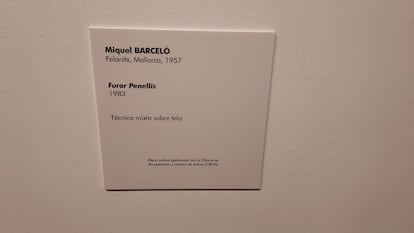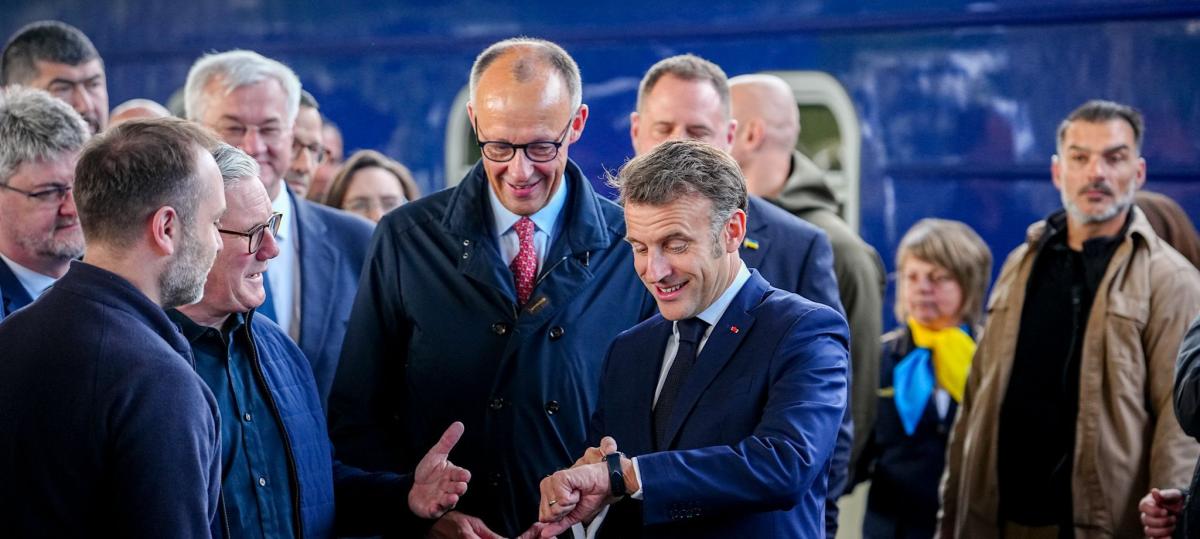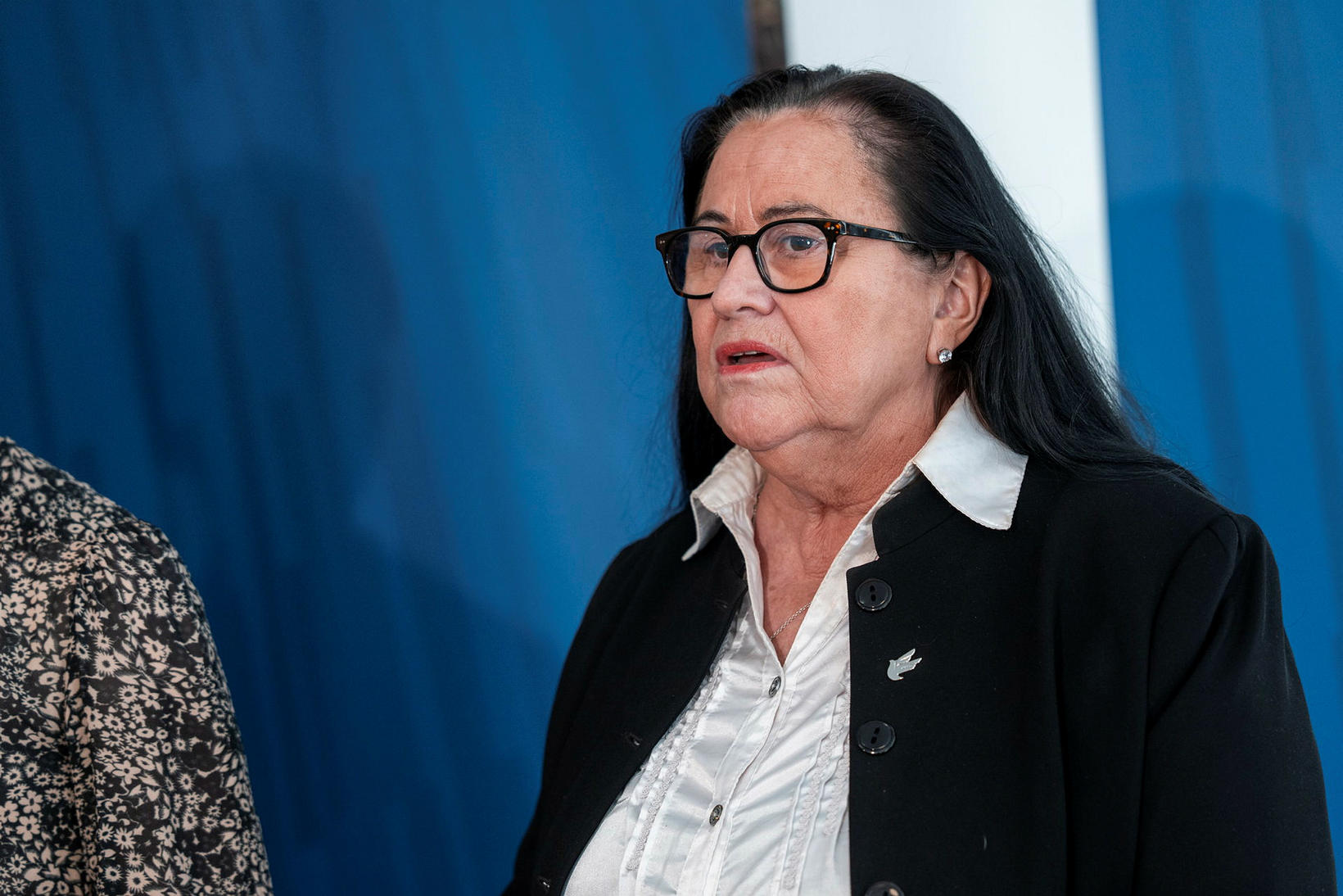Less faithful and record of public funds: The Spanish Church that will find Leo XIV | Spain

When Leo XIV Look at Spain, what will you see? A paradox. On the one hand, a society in gallopant decatolization. On the other, a church that, despite the bleeding of faithful, enjoys a position of great influence, now especially in the educational fieldand that maintains its proverbial capacity to get winning from political negotiationsvirtue again tested during Francisco’s papacy.
This is synthesized by historian Carlos Rodríguez López-Brega, author of The lost steps of Spanish Catholicism. Catholics and Spanish politics of the twentieth century (Tirant, 2022): « While waiting for a new wave of spirituality to recover strength, the Spanish Church is managing its decline effectively taking refuge in education, where you enjoy favorable legislation, and asserting your ability to get as much as possible from politics, governs the right or left. »
« The majority of the Spanish people profess the Catholic religion. » The statement is still there, chiseled in the BOE. Specifically, in the Agreement between Spain and the Vatican of 1976from which the four thematic pacts of 1979 hang: economic, educational, legal and On the presence of the Church in the Army. But, data in hand, the phrase already has a doubtful point. In April, the percentage of Catholics exceeds half half, 55.4%, although only 18.8% are practitioners. 40 years ago, Catholics said 90.2%. And only ten, 68.8%. Among those under 24, Catholics exceed a third.
In 15 years, the number of priests has fallen from 20,390 to 15,285, 25%; that of Seminarians, from 1,387 to 965, 30.4%, according to Memories of the Episcopal Conference (EEC)the last of 2023. The number of Catholic weddings has also descended. In 2023, of the most 172,000 marriages held, just over 30,600 were religious, 17.7%. In just ten years, almost 39%have fallen, according to the INE. From the children of the Spanish mother, in 2023 more outside of marriage was born, 52.7%, than inside. Something unthinkable 20 years ago, when extramarital kids did not reach 21%. It is a deep and fast change.

If the BOE reviews, the new Pope will verify that it has been adapting to secularization for more than four decades. The laws of Divorce of 1981of the abortion of 1985, 2010 and 2023of the 2005 homosexual marriageof 2020 euthanasia or of rights trans in 2023 They have been approved with the opposition of the high clergy. « If you asked the bishops if they are happy with these 40 years and could only look at these laws, they would tell you no, » says Rodríguez López. « Now, » he adds, « if you look at how they have gone in their recognition by the State, the thing changes. »
Untouchable agreements
Why does it change? Because there is a range of aspects in which, far from evolving against the wishes of the high clergy, the regulations have done so respecting their interests. Or even improving your status. It is all that affects its position as an institution, anchored in the agreements of 1976-1979. Despite the various PSOE threats, no socialist government has touched them, so they are still identical despite social change.
Here are some examples of what they imply. The State pays Religuatales in prisons, hospitals and barracks. It guarantees that public education is « respectful of the values of Christian ethics. » It forces public centers to offer the subject of religion, for which bishops choose books and teachers. Establishes multiple tax exemptions. It compromises the State to « collaborate » in the « economic support » of the Church. « The agreements make up a privileged aconfesionality model that the Church has managed to keep intact, » says historian Ángel Luis López Villaverde, author of The power of the Church in contemporary Spain (Catarata, 2013).
« TO (Vicente Enrique Y) Tarancón He is remembered above all as a progressive cardinal. But, in perspective, it is above all who achieved, taking advantage of his Feeling with Adolfo Suárezagreements that have allowed the Church, despite its decline, maintain excellent status and guaranteed support, a regime similar to Italian or the Portuguese, ”says Rodríguez López -bre.
The main task that the agreements assign to the Church is still pending. The « purpose » of the Church to self -financing has remained in mere statement. Successive norms have shaped stable public financing. In 1988, with Felipe González, the annual assignment system was set via IRPF, with 0.5239% of each EQUIS. It does not impose a surcharge to whom the cross marks –as in Germany-, but the money is detailed from the total raised, calculated depending on the number of crosses. Conclusion: They pay all, mark or not.
Since 2000, with José María Aznar, it is also allowed to compatible the cross of the Church with that of social purposes, avoiding a dilemma that displeased bishops. The series of agreements favorable to the Church culminated in 2006, with José Luis Rodríguez Zapatero, when each EQUIS went to 0.7%. The counterpart was the « resignation » of the Church to the exemption of VAT, Actually a European demand. In 10 years, the institution has received almost 3,000 million euros. The Last memoryof 2023, collects a record allocation: 382.4.

Less pulpit, more slate
López-Villaverde points out that even more than in the economic-fiscal field, the Church has benefited from an « excellent » political treatment in education. The 1979 agreement, in addition to guaranteeing its presence in public classrooms, laid the basis for public financing of private, consolidated in 1985 with the LODE, origin of the current Concert system.
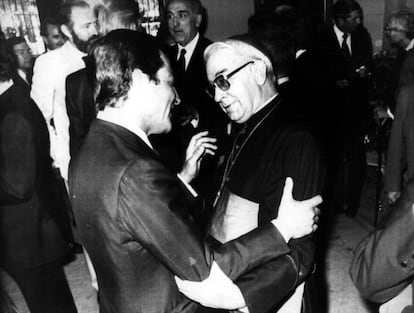
The numbers illustrate how, in parallel to their Recook in the pulpitthe church has become strong on the board. Students in concerted Catholic centers are located around a million and a half. Between 2013 and 2023, religion professors have gone from 25,660 to 36,686, almost 43% more. Catholic universities have increased from 14 to 17, and their students from 83,279 to 148,350, 78.1%, all according to the Episcopal Conference, which chairs Luis Argüello.
Another vigorous church leg is the festive. In 2023 there were 418 religious festivals, 97 officially recognized of national tourist interest and 46 international. López-Villaverde points out that the bulk of the administrations-in coherence with their impetus in tourism promotion-have offered both public aid and symbolic support for a « popular religiosity » that has facilitated the Church to maintain a « banal Catholicism » of strong cultural roots. « It is, next to the classrooms, its great focus of influence, » he says.
Sánchez’s stage
The current socialist stage in the Government, since 2018, is the only one in which the Catholic hierarchy has not expanded its benefits. To this is added the government pressure for the Church to assume responsibilities for sexual abuse. However, at the same time, Pedro Sánchez has remained far from the secular bar placed by himself, who in his candidate’s stage came to defend the repeal of the agreements with the Holy See. He has never had enough majority to approve it in Congress, so that idea has not been at the table.
What the government sought, from the Carmen Calvo stage as vice presidentwas Eliminate IBI exemption for buildings not dedicated to worship or social purposeswhich finally did not occur. The agreement with the Church was limited to ending two minor tax exemptions, which would allow government calculations to be collected, 16 million a year.
The Executive has not approved, although it was in the PSOE and Unidos Podemos Government Agreement, the legal reform to reverse the “misunderstanding” immatriculations, although in 2021 it did impose greater transparency on the registered assets. The script was repeated. As in the case of taxation, the Church preserved with nuances its previous position on a key issue. In the case of immatriculations, the 1998 mortgage reform, with Aznar, had put red carpet for register more than 20,000 temples and almost 15,000 farms.
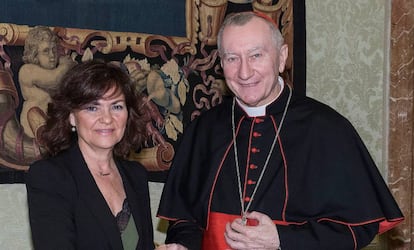
It is an unknown if the government will resume the law of freedom of conscience to guarantee the « secularism of the State », commitment of the agreement of the PSOE and united Podemos that did not enter the PSOE with adding. The reform or suppression of the offense of religious feelings is pending, announced for the first time in 2021 and Again last year. The CEE has already expressed its displeasure with the idea. « There is a proposition of Organic Law in Congress and we are talking with the groups to collect their support. The commitment is firm, » says a spokesman for the Ministry of Presidency. It is also about to see how the agreement of the last Congress of the PSOE is, held in November last year, to repeal the educational pact with the Vatican of 1979. After the socialist resolution, the government for the moment has not collected the glove.
« Negotiating, bishops always win. The Church has 2,000 years of experience and the advantage of being able to think in the long term, » says López-Villaverde. « Sánchez has renounced to reform the church-state relationship and has limited himself to symbolic gestures, » he adds, in reference to the secular scrupulus of possession shots, to the Aconfesional funeral by the victims of the COVID Already the two great negotiations that opened with the church on the previous one called Valle de los Fallen. The first, in 2019, for the Franco exhumationhe raised ampoules in the high clergy, which ended up conforming. The second, for the resignification of Cazgamuros, has also caused discomfort in part of the episcopate, although the government has yielded by allowing the permanence of the Benedictines. In both negotiations – exhumation and resignification – the Vatican was involved. Without its participation, says Rodríguez López-Brega, the Spanish Church would have maintained even more hard positions. « The Spanish bishops are very peculiar. Neither Francisco has been able to with them, » he says.

